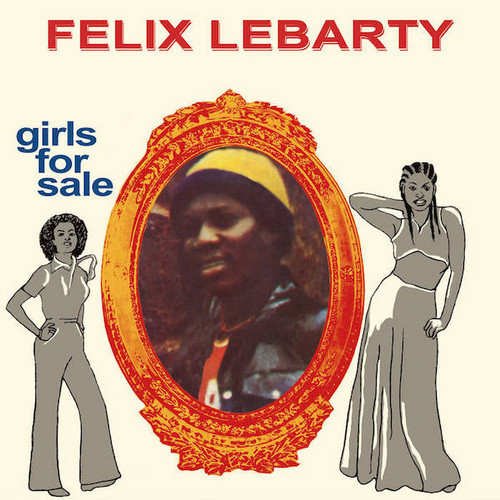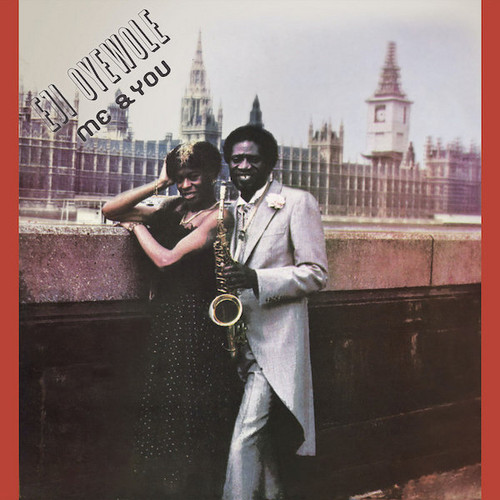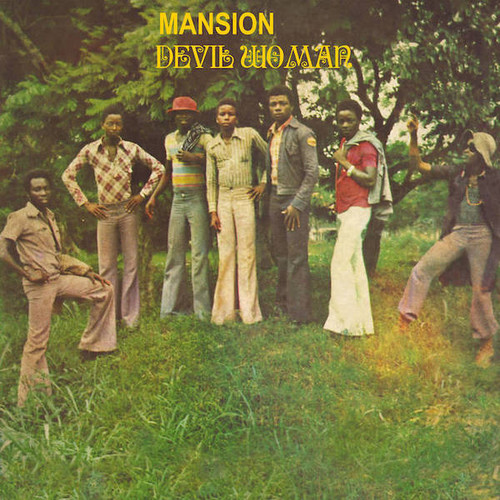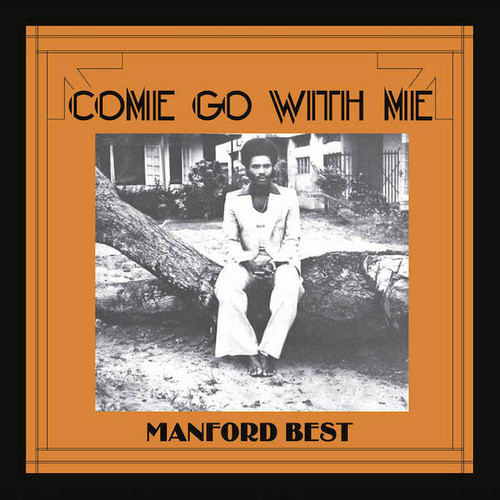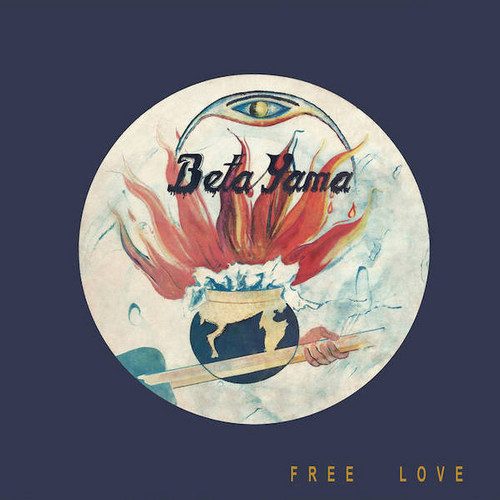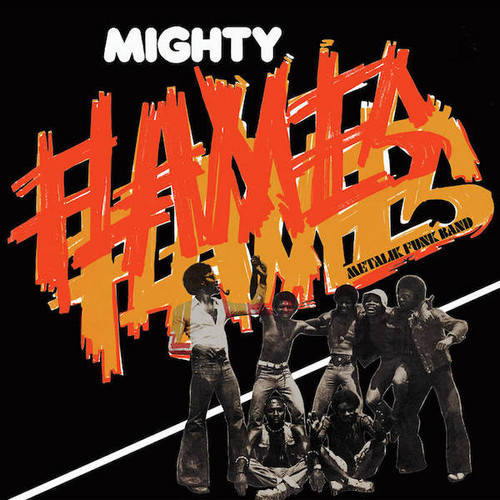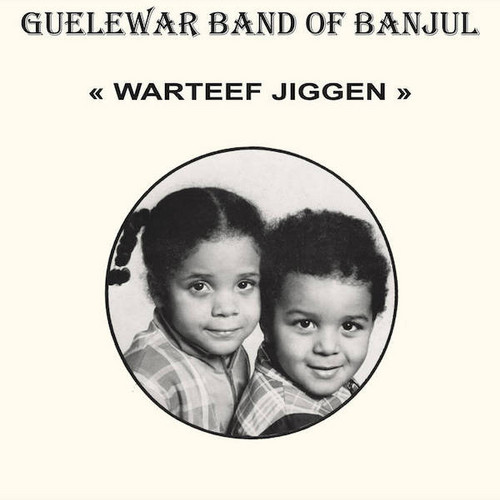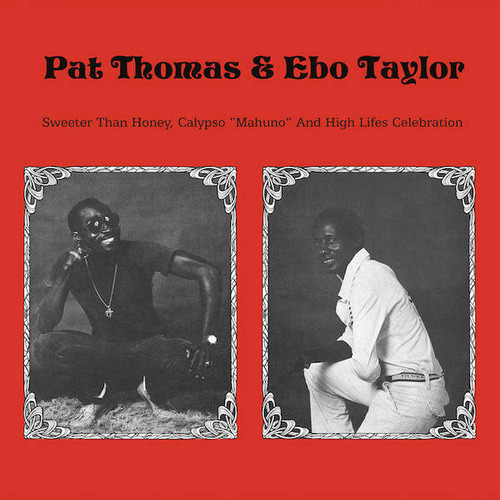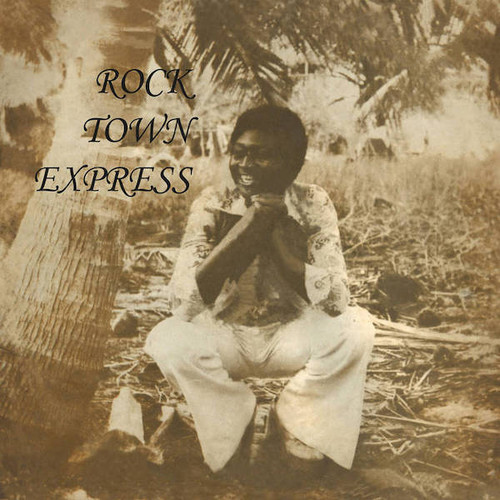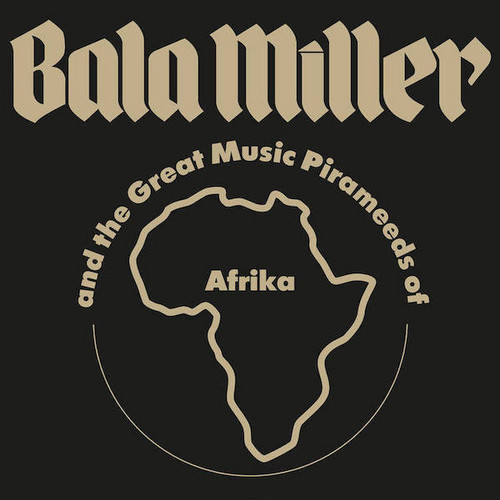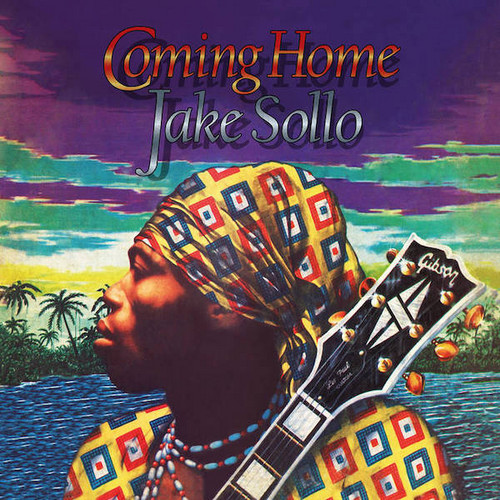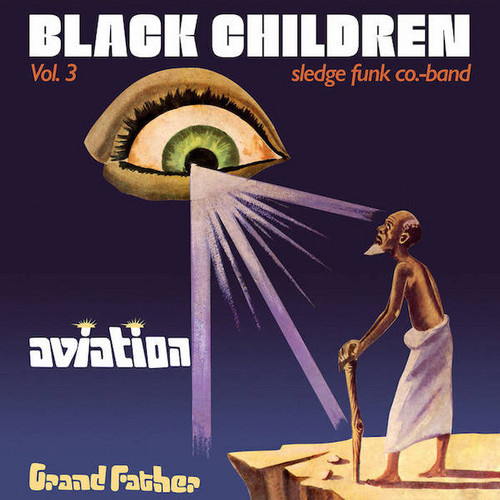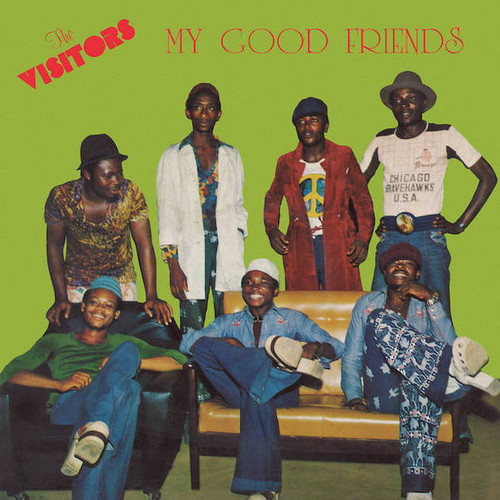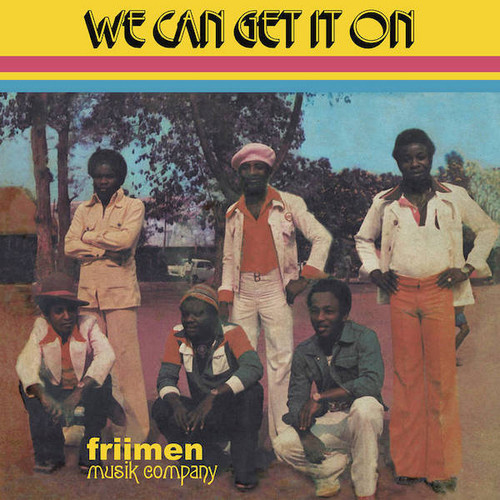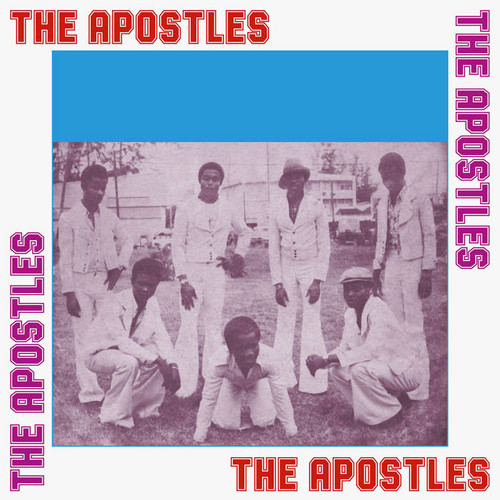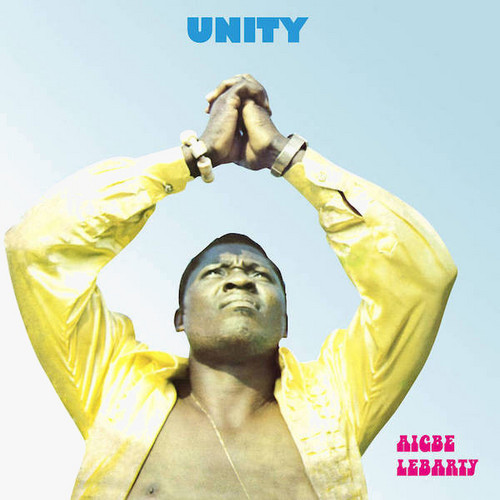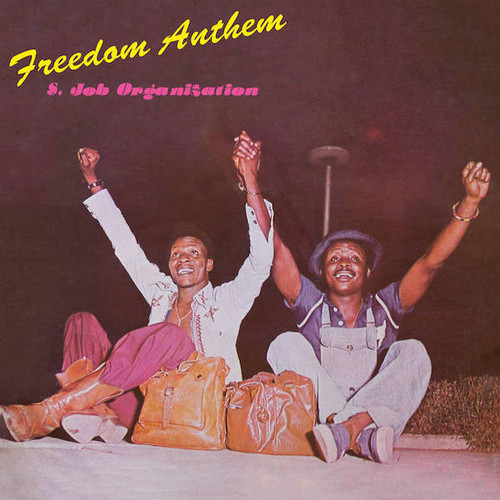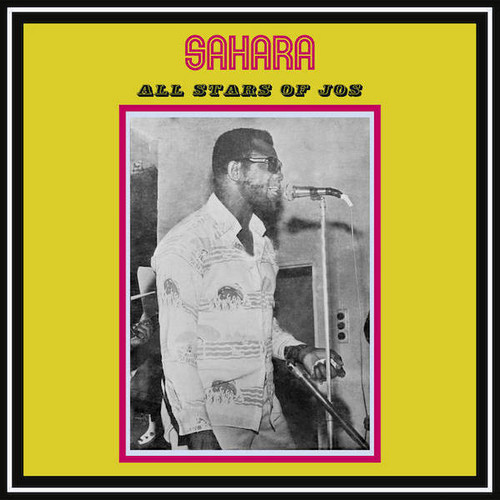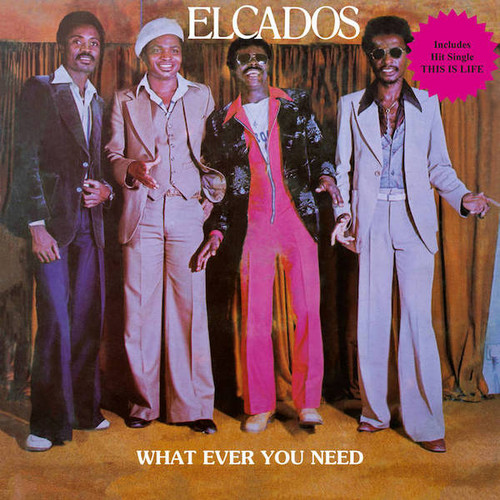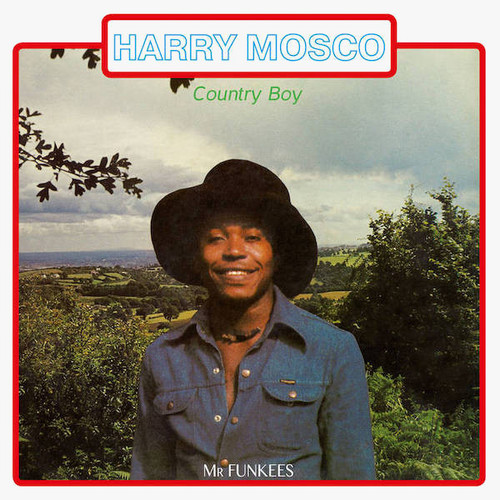★PMG
Girls For Sale
Before he was Nigeria's self-proclaimed Mr Lover Boy, Felix Lebarty was an upcoming musician in the country's Edo-Delta region. His big brother, Aigbe, was a legendary Highlife bandleader, but Felix paid his dues playing guitar with Thony Shorby Nwenyi and the Collection of Stars, along with fellow 'star' Mighty Flames bassist, Willy Nfor. Perversely, Girls For Sale was released after Lover Boy, the slick disco album that cemented his place in Nigerian music history. It is a collection of tracks…
You & Me
A bona-fide Nigerian prince and probably the only musician to have ever played with Fela Kuti, Miles Davis and Bob Marley, Eji Oyewole combined African Highlife with western jazz to create a hybrid so that was as smooth as it was funky. His first album, Charity Begins At Home was an angry tirade against corruption in Nigeria. Me & You is his ‘relationship’ album, a brighter and happier set of songs that sees Eji all loved up, presumably with the mysterious ‘Cameleon’ featured on the cover. Eji’s…
Devil Woman
The eastern Nigerian city of Calabar in Cross River State was colloquially known as Canaan City – a place of lush landscapes, alluring women and delicious cooking. When the Biafra War ended it became a land of milk and honey for bands as well, with jumping venues like the Taj Mahal and Luna Nite Club and a label called Clover, set up local entrepreneur Ben Okonkwo, releasing albums by bands like The Doves, The Visitors, Aktion and The Apostles. The youngest band on the Clover roster was Mansion,…
Come Go With Me
With the Super Wings in mutiny and a trail for the manslaughter of his former bandmate, Spuds Nathan, still hanging over his head, Manford Best came out swinging with Come Go With Me. It’s a chirpy, calypso-influenced insight into the state of his mind and his first solo album. Recorded at Godiac Studios with the guys from Rock Town Express and a few of the Super Wings, Come Go With Me was the first album recorded on a new Tascam system that Goddy Oku had just bought back from London. The sound …
Free Love
It’s hard to get a handle on Nigerian musicians Nash Dodoo, Charlie Cuul and Jonas Caulley. In 1980 they released an album of face-melting gospel boogie as the BML chapels. And in the same year, calling themselves the Beta Yama Group, they put out Free Love, a belated love letter to San Francisco’s Summer of Love and an album altogether focused on more worldly concerns. Free Love is a small slice of Haight-Ashbury transported to the Polygram Studios in Lagos. ‘Te Revoir’ is Mamas and Papas jammi…
Metalik Funk Band
The Mighty Flames were a crack bunch of Cameroonian musicians, drawn to Nigeria by the heavy funk sounds booming across the border like musical moths. For a short time in the late sentries they ‘owned’ Port Harcourt, destroying dancefloors with an incendiary sound that burned so heavily that it was phosphorescent. Metalik Funk Band is the band at their most deadly. Willy ‘Pazz’ Nfor is on bass, Nfrackie ‘Jazz’ Song on synth, Didi Lead on lead guitar, Emma ‘Wah Wah’ Baloka on rhythm and Stormy ‘B…
Warteef Jigeen
The Guelewar Band of Banjul are a band quite unlike any other – an explosive mix of soul and funk with local rhythms like Boogaraboo and Ndaga combined with a defiant insistence on singing in their local language, Wolof. They certainly blew a young Youssou N’dour away. He cites them as his biggest influence. Warteef Jigeen marks the point the band found its groove. The title track sets the tone early with parping horns and psychedelic guitar licks. ‘N.T.C. The Gambia’ and ‘Jilana’ seamlessly ble…
Sweeter Than Honey
Pat Thomas and Ebo Taylor are the Jagger and Richards of Nigerian Highlife. Drawn together by a mutual love of the genre – and an equally intense desire to stop it becoming moribund and bereft of ideas – Ghana’s two most progressive musicians added a western twist to this traditional form of African music and gave it relevance again. It was by no means a continuous process. Pat Thomas and Ebo Taylor first came together in 1966. Over the decades they’d venture off to play in different bands and e…
Rock Town Express
There was a time in the 1970s when the best band in the Nigeria was actually from Cameroon. Rock Town Express, formed out of the ashes of Wrinkar Experience by Yaoundé boys Edjo'o Jacques Racine and Ginger Forcha, hit it hard, hit it loud and hit it funky. Racine and Forcha had been recruited from Cameroon by Dan Ian and after only six months, left them stranded in Nigeria's troubled east. Their first album as Rock Town Express was released on Ginger Baker's ARC label in 1974. This, their second…
Pyramids
Bala Miller was famous for pushing boundaries. His first job was selling beer in the Muslim north. And as a musician he'd always try to sneak in 'local' flourishes while playing trumpet with Bobby Benson and Victor Olaiya. It was with his band, the Pirameeds, however, that he was able to realise his dream of incorporating northern tunes into mainstream highlife. Honed razor sharp from a residency at the Costain Club in Kuduna, the band recorded Pyramids, a breathtaking fusion of Hausa rhythms, j…
Coming Home
In 1977 Jake Sollo returned to Nigeria to record his first solo album, Coming Home. His long-term band, The Funkees, had imploded in London. And his big break with the Afro super band, Osibisa, was cut short when he went on strike with Kiki Gyan and promptly got sacked. Rather than sit at a bar and feel sorry for himself, Jake returned to Nigeria and got his mates together – including the aforementioned Mr. Gyan – and headed into the EMI studios in Lagos. The result was Coming Home, a triumphant…
Vol. 3: Aviation Grand Father
In the mid-seventies Nigeria, everybody loved the Black Children Sledge Funk Co. Band. Blasting out of the bustling river port of Onitsha, their infectious, feel-good grooves were the perfect antidote to the dark economic clouds gathering over the country. Nigerians, young and old, lapped it up. Every member of the band had played with The Strangers. Michael Hammedatha Moore, sang and wrote the songs. Daniel Carlos Yakubu played guitar. Jerry Freeman Nwokolo was on keyboards. And Benson Teteh pl…
My Good Friends
Set up by producer Ben Okonkwo in 1973, the BEN label, and its offshoot Clover Sounds, broke some of the biggest bands outside of Lagos. The Apostles, Akwassa, The Doves, Mary Afi Usuah and Aktion all got their start in the cramped studio in the commercial heart of Aba. The least known – and arguably one of the best bands on the label – was The Visitors. For a short, sweet time between 1975 and 1978, The Visitors were creating the most righteous sounds in the East. We’re talking deep afro-funk w…
We Can Get It On
By the mid 1970’s in Nigeria, the Biafran War was a distant memory and the music scene in the eastern city of Aba was booming again. Bands like The Funkees, The Wings and The Apostles grabbed the headlines, but the more interesting stuff was coming from smaller groups like the Friimen. The Friimen, or the Friimen Muzik Company to use their official name, were influenced as much by pre-Saturday Night Fever Bee Gees as Jimi Hendrix and James Brown. In Beni Tudumey they had the best keyboardist in …
Apostles
The Apostles were disciples of a heavy kind of psychedelic soul/rock fusion. After The Funkees left for London, they stepped into the breach to become the champions of East Nigeria’s flourishing post-war music scene. Based in Aba, and led by guitarist and charismatic chancer Walton Arungwa, they laid down a couple of singles with the city’s newly-formed BEN label. EMI liked what they heard and in 1976 whisked the band to Lagos to record The Apostles with the legendary Emmanual Odenusi at the con…
Unity
In 1979, long-time Highlife veteran Aigbe Lebarty decided to try his hand at high-energy disco funk. Checking the Lebartone Aces at the door, he borrowed the Sex Bombers from Prince Omo Lawal-Osula and created Unity, a sure-fire dance floor stomper that channels ‘Ring My Bell’ into a clarion cry for, well, unity ... and a good time. The title track is the undisputed highlight of the album. It rattles along in a wonky, skittish fashion, with the high-pitched toms dueling with the Sex Bombers in a…
Freedom Anthem
S. Job Organization (also known as SJOB Movement) was a rarity in the Nigerian music scene – a collective of equals in a world where band ‘leaders’ ruled the roost and ‘band boys’ had to make do with the crumbs. The name was an acronym representing each of the members – Samuel ‘Spark’ Abiloye, Johnnie Woode Olimah, Ehima ‘Blackie’ Ottah and Prince Bolarinwa Agba. They were music scene veterans and the nucleus of Sonny Okosuns’ group, Ozziddi. Unshackled, their undeniable chemistry fizzed. Listen…
Sahara All Star Band Jos
Based in the Havana Nightclub, in the central plateau town of Jos, the Sahara All Stars of Jos weren't part of the Lagos scene or the one in the east. Their leader, Dan Satch Ayo, had played with Dr Sir Warrior in the Orientals. He'd jammed with Mohammed Ahidjo and Sonny Akpan from The Funkees. Together with the All Stars he took the best of both scenes and created his own tight, hypnotic groove. First released in 1978, Sahara All Stars of Jos is a musical journey through all of those influences…
What Ever You Need
By the 1979 release of Whatever You Need, the Elcados were ready to party. “We got rhythm, we got sound,” they declare on ‘Funky Music’. “You’re going to dig it!' Starting out as the Moonrakers in Kanu in 1968, Steve Black, Rocky Mustapha, Tony Nosika and Frank Martins, spent the next decade gigging their way out of the north, including a surreal set with Khalifa Baba-Ahmed at the Miss New Nigeria contest. They released two rock-oriented albums in the mid ‘70s before hitting a disco/reggae groov…
Country Boy 'Mr. Funkees'
Don't let the floppy hat and rolling English countryside on the cover fool you. Harry Mosco's Country Boy is a certified floor-filler, bursting with Studio 54 era disco-funk as well as a token reggae monster, complete with its own dub version. Harry Mosco always had swagger. A founding member of The Funkees, he'd stride out on stage in tight pants and dark sunglasses, commanding the attention of a population distracted by war. When The Funkees split in London, it was clear that his star would ri…
